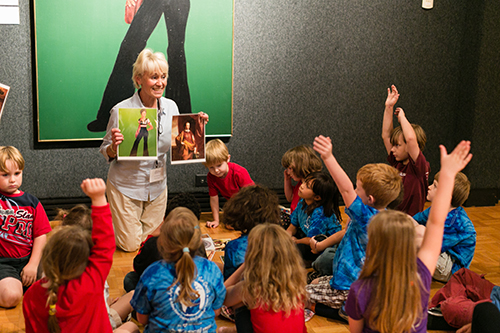
Last week the world lost Nelson Mandela; a great man who left a significant mark not only on the world, but on humanity. At the time of his death, my ten-year-old daughter noticed all of the news coverage and inquired about him. What did he do? Why was he important? Of course, I provided her with a basic summary that she might be able to comprehend, but then I began to consider the larger themes reflected by this person and his role in the history of humankind. As he stated, “Education is the most powerful weapon which you can use to change the world.”
This year the American Academy of Arts and Sciences published a study on the significance of the humanities. In this study entitled The Heart of the Matter, and the partnering video, the value of humanities is reflected upon as it serves to “remind us where we have been and help us envision where we are going.” Screenwriter and Director George Lucas shares his thoughts on the importance of science and technology in partnership with the humanities by saying, “science is the how and the humanities are the why.” He then argues “we cannot have the how without the why.” As a liberal arts major, I find it particularly disturbing that according to the study, “less than a quarter of 8th and 12th grade students are proficient in reading, writing, and civics.” The study goes on to say that “three out of four employers want schools to place more emphasis on the skills that the humanities and social sciences teach: critical thinking and complex problem-solving, as well as written and oral communication.”
The visual arts are a significant component of the humanities and decades of studies reveal that effective arts education promotes self-directed learning, sharpens critical skills, develops self-awareness, and improves school attendance. Yet a recent study from the National Endowment for the Arts on The Arts and Achievement in At-Risk Youth tells us that “nearly four million elementary school students do not get any visual arts instruction at school during their formative learning years.” In recent weeks, a number of articles have been published, such as the New York Times article entitled Art Makes You Smart, that emphasize the critical need for humanities programs including arts education. How will a ten-year old like my daughter be able to better understand the future world and her place without subjects like history and art?

To me the Gibbes Museum is a center for creativity that addresses these issues by offering solutions and resources. Museums are places where education thrives, and the Gibbes is no exception. It is a place that combines the how and the why. James Shoolbred Gibbes, who founded the museum after Reconstruction, envisioned a locus for creative capital in Charleston, and by providing it, he hoped to retain the area’s best and brightest minds. The academy-style institution he established continues this tradition to this day. Arts education remains central to the mission of the Gibbes and serves as a center of creativity for students and adults. From in-school programs such as Art to Go, Eye Spy, and Eye Opener, developed in conjunction with S.C. Learning Standards, to on-site museum programs such as Courage by the Sea: Revolutionary Tales of the Gibbes Family, where students become actors in a drama that traces the history of Charleston from the Revolutionary War to the dawning of the Civil War, these outstanding programs allow students within our community to stretch their minds and develop their potential.
At this time of year, I always reflect upon the past year and count my blessings. I can truly say that I am happy to have a place like the Gibbes Museum that stimulates innovation and discussion and offers our community a place to integrate our past with our future. I encourage you to take part in one of our many programs and to help share these programs with others. I also thank you for continually supporting the Gibbes and transforming education in the Lowcountry for generations to come.
—Jennifer Ross, major gifts and grants consultant, Gibbes Museum of Art
Published December 9, 2013

